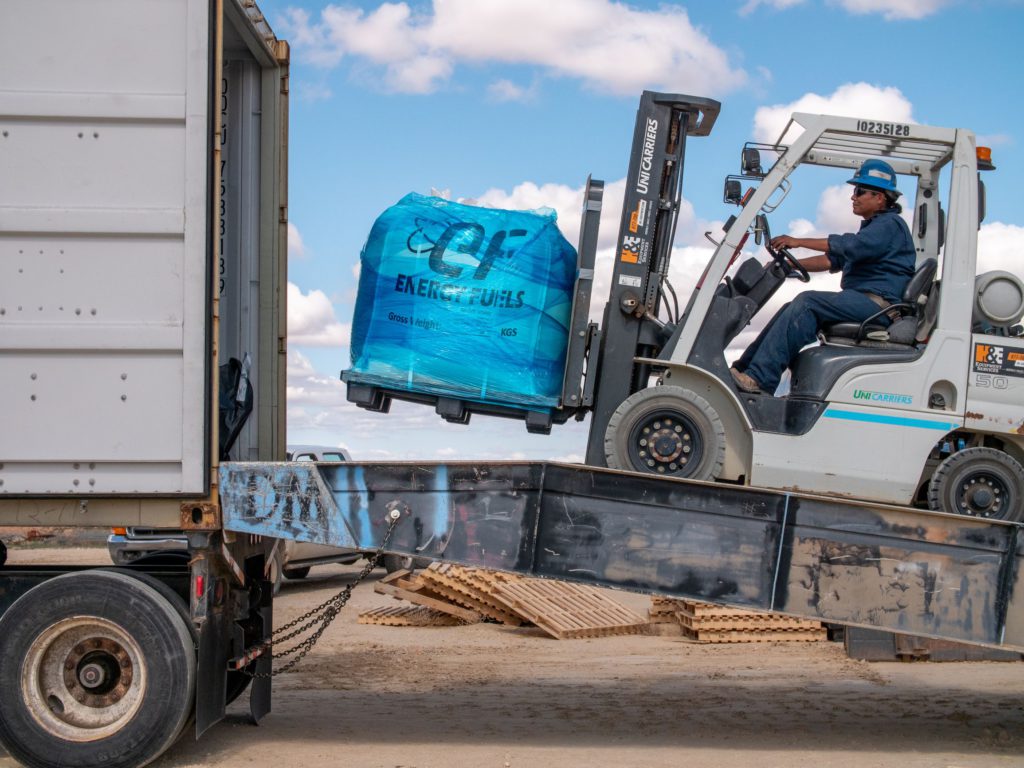
The REE carbonate underwent partial separation at the White Mesa mill before its delivery, a step which the company describes as the “first commercial-scale REE separation to occur in the U.S. since at least the early 2000s.
Related: Energy Fuels’ first shipment creates US-Europe rare earths supply chain
“We are currently producing commercial-scale quantities of a rare earth material that is more advanced than any other company in the U.S.,” said the company’s CEO Mark S. Chalmers in a press release. “We only announced our entry into the rare earth space in April 2020… we have been able to move at lightning speed because we have existing licenses, expertise, and infrastructure.”
Located near Blanding in San Juan county, the White Mesa Mill is the only conventional uranium, vanadium and REE recovery facility operating in the U.S., says Energy Fuels. It has a licenced capacity of over 8 million lb. of U3O8 per year.
In the week of April 4, the mill shipped 15 critical elements including cerium, cerium, praseodymium, neodymium, dysprosium, terbium, yttrium, and erbium along with uranium and vanadium to downstream processing facilities.
The REE carbonate shipped to Silmet contained 32% to 34% neodymium and praseodymium and can be used in electric vehicles after being refined, Chalmers said. The shipment of vanadium to Pennsylvania will be converted to ferrovanadium for use in high-strength steel and other alloys, while the uranium concentrates will be used to produce carbon-free electricity.
The prices of these three metals have witnessed an uptick in the last year as countries stepped up to meet their decarbonization goals.
Aside from the mill, Energy Fuels owns the Nichols Ranch uranium recovery facility in Wyoming with a licenced capacity of 2 million lb. of U3O8 per year and the Alta Mesa project in Texas, which is also a fully permitted uranium production facility with a licenced capacity of 1.5 million lb. of U3O8 per year. Both these operations are currently on standby.




